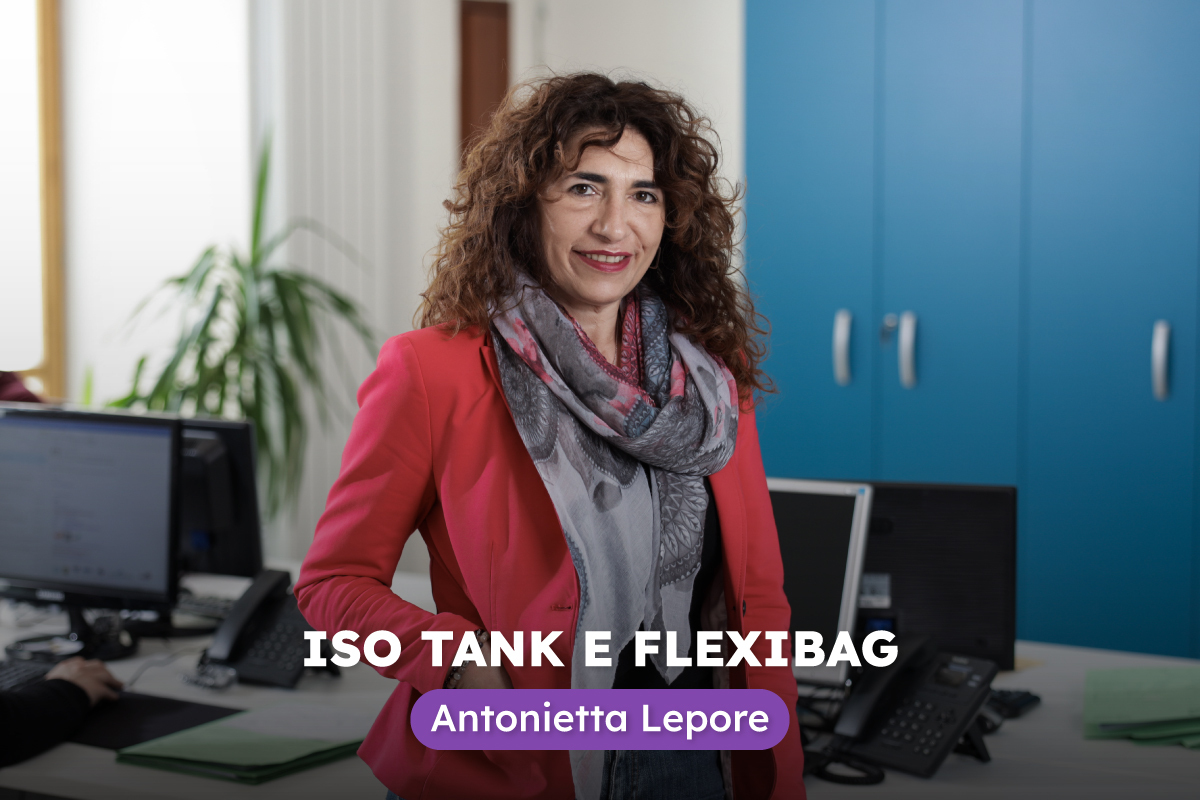Just a year ago she joined the Crasta team, enriching the company with her expertise in a sector that to define as a niche is an understatement: the transport of hazardous goods.
What exactly are we talking about? Antonietta Lepore, Crasta’s Business Development Manager and professional with 20 years’ experience in the field of international shipments, with a particular specialisation in the transport of dangerous goods in both container boxes and SOC (shipper-owned container) ISO tanks, explains.
Antonietta, tell us about your specialisation in this area…
I’ve been working at Crasta for more than a year, but I have 20 years’ experience in the field of international LCL or FCL shipments by sea with all types of container and by air, and above all I specialise in the transport of dangerous goods, whether in standard containers or ISO tanks, and in the transport of liquid bulk goods by flexitank.
Over the years I have had the opportunity to develop working relationships with major hazardous goods transport operators around the world and this provides a preferential channel for handling hazardous goods, whether in liquid or solid state, from any loading point to the most remote destinations.
This is a niche market that requires great care and knowledge of the regulations governing the transport of dangerous goods nationally and internationally.
How important is experience?
Experience in the hazardous goods sector, and more generally in international forwarding, is that which allows one to identify the critical aspects of a transport operation already at the planning stage and then to organise and coordinate the various parties involved accordingly.
Experience also means having selected suppliers over the years on the basis of the quality of the services offered and having a profound knowledge of the specific needs of the goods entrusted to us: customers appreciate the fact that we know the problems of their goods and are able to anticipate their criticalities by also closely following the operation of shipments.
It’s a very sectoral, very specific job…
It is very specific, yes, just think that it is not uncommon for other freight forwarders to rely on us to manage their customers’ ISO tank or flexitank shipments…
In addition to ISO tanks, you also specialise in flexibag loading. Can you explain what this is all about?
The Flexitank, also called Flexibag, is essentially a flexible tank, made of PVC, polyethylene or similar materials, which is installed in a 20′ box and which is filled with products in a liquid state.
The flexibag, in which no dangerous goods can be loaded, is disposable and must be disposed of each time it is unloaded.
For Flexibags there is a special preparation process and we rely on operators who have high-quality, insured and guaranteed Flexibags and have specially selected transporters to handle the transport.
We also take care of the set-up of the containers, working with specialised technicians to mount the Flexibag inside the containers.
How much liquid goods can be handled with a Flexibag?
There are Flexibags starting from 16,000 litres up to a maximum of 24,000 litres. Of course, the load also depends on the destination: there are some countries where you cannot load more than 20,000 kilograms. Each country has its own regulations and, depending on the final destination, the product data sheet the customer sends us, and the quantity they intend to load, the correct Flexibag is arranged.
What is the advantage of loading liquid bulk goods in Flexibags or ISO tanks?
The advantage is in the optimisation of space, as there is no packaging: the product is loaded and unloaded directly from the silos at the customers’ production and stocking facilities. Of course, these are companies that handle fairly large quantities of goods in liquid form, companies that have facilities that are specifically organised for loading or unloading ISO tanks or Flexibags.
What about customs procedures?
Like all goods destined for or coming from abroad, dangerous goods are also subject to customs procedures, but in this case it is necessary to optimise time as much as possible because the storage and handling of dangerous goods containers are exponentially more expensive than for ordinary goods. For this reason, it is in the customer’s interest to rely on professionals to interface with them to obtain all the necessary documentation based on the customs destination of the goods and to complete the operations quickly and accurately.
